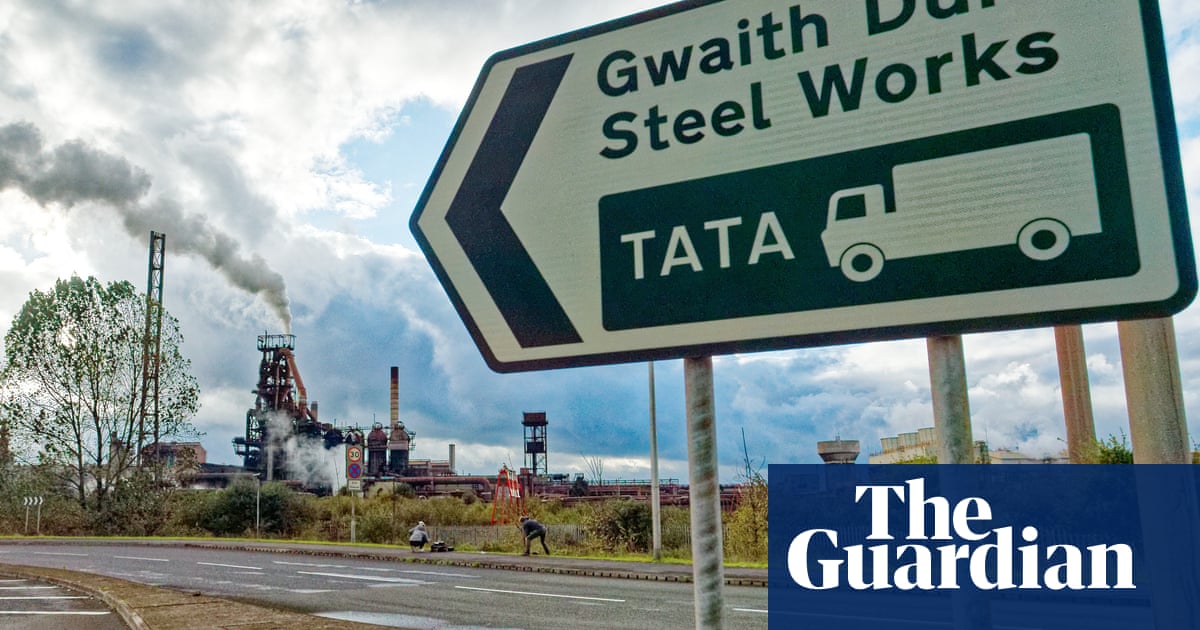Ministers are reportedly working to stop the UK’s biggest steelmaker,TataSteel, from being left out of tariff-free access to the US under Keir Starmer’s trade deal with Donald Trump.
The prime minister said on Wednesday that he hoped his deal with the US – which has been agreed but not signed – would come into effect“in just a couple of weeks”, after the US president decided to pause 50% tariffs on British steel and aluminium products for five weeks.
However, the deal could end up excluding Indian-owned Tata Steel, which runs the vast Port Talbot steelworks in south Wales, because of the origin of some of its products, its bosses fear. The company exports more than $100m worth of goods into the US market every year.
Tata Steel shut down its blast furnace at Port Talbot last year owing to its transition to a greener electric arc furnace. As part of that change, the company has imported steel from its sister companies in India and Europe to ship on to customers.
However, this could breach US import rules that require all steel to be “melted and poured” in the country from which it is imported.
UK negotiators have been trying to secure a carve-out for Tata, according to the Times. A government source reportedly told the paper that they were confident a deal could be struck to protect Tata but said negotiations were “complex”.
The UK government has also come under pressure from the US over British Steel, which is owned by the Chinese Jingye group. In April the government used emergency legislation totake control of the site in Scunthorpeamid fears the Chinese company planned to let its blast furnaces run cold.
However, US representatives are concerned that Chinese involvement inBritish Steelcould allow Beijing to use the company as a “back door” into the US for Chinese products, according to the Times.
The US has this week doubled tariffs on foreign steel and aluminium imports to 50%, which applies toall trading partners except Britain. The rate for steel and aluminium imports from the UK will remain at 25% until at least 9 July although the exact size of Britain’s steel quota is unclear.
As part of Starmer’s deal with Trump last month, the US agreed to cut the 25% tariff rate on British steel and aluminium exports to zero, but this has not yet been finalised.
Steel manufacturers say delays to implementing the trade deal have lost them business. Speaking to MPs before the announcement, Russell Codling, a director at Tata Steel, said that about £150m of business was affected by tariffs. “If we can get this deal enacted as quickly as possible … it will get stability for us and for our customers in the US,” he said.
